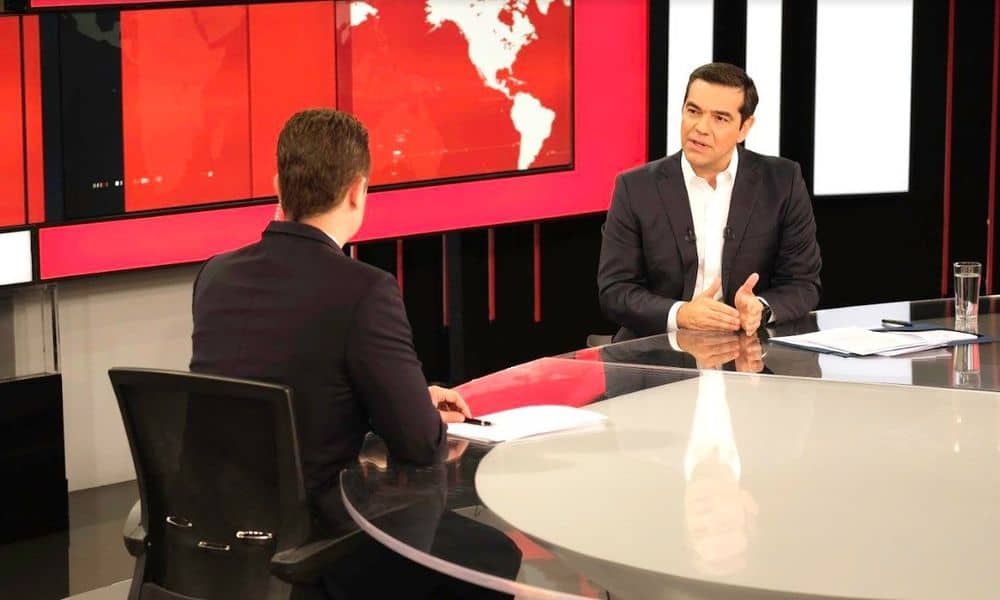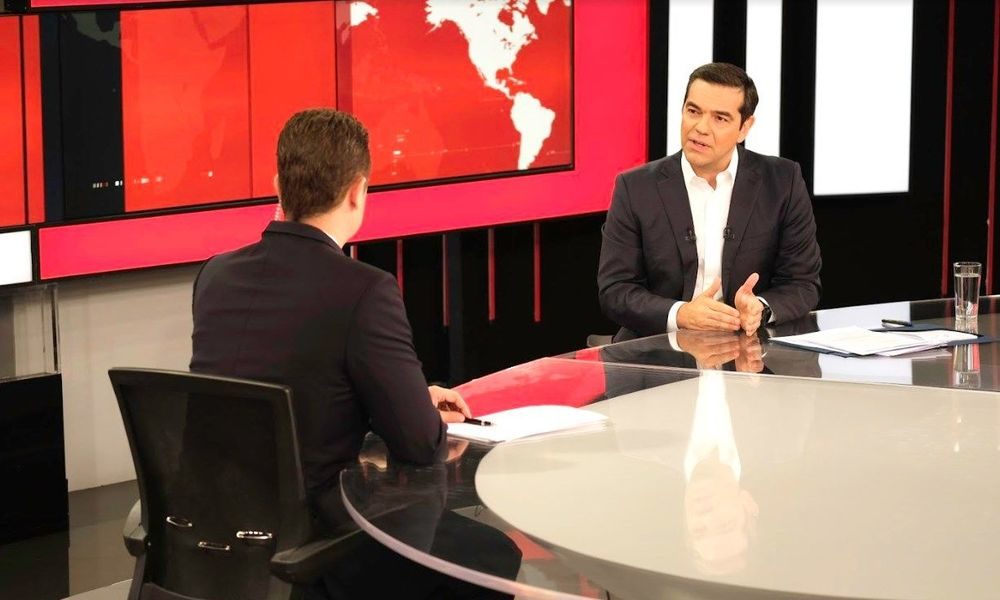
Greece’s Prime Minister Alexis Tsipras struck an optimistic tone during a media interview on Wednesday evening, saying that the heavy losses his party suffered during the European elections were simply a message from the electorate that was still reversible.
Speaking on Alpha TV, Tsipras noted that he did not have to call for snap elections after the heavy losses at the European elections, saying that the difference with the main opposition was 500,000 votes.
"We can reverse it if we fully understand those voters who did not shut the door on us but gave us the message: 'We recognise SYRIZA's efforts these last four years to bring the country out of the loan memoranda, but we expected to achieve all these faster and less painfully'," he said.
Greece’s upcoming general elections on July 7 should "be based on the comparison between two policy programs," of SYRIZA and New Democracy (ND), he noted, acknowledging that the government had "not assessed the (percentage) difference from our political rivals" properly. "We were wrong," he noted, but "we demonstrated we got the message by announcing the very same night that we would call elections."
Further criticising main opposition party New Democracy Tsipras said ,"Our rivals claim they are able to provide generous tax relief to large businesses; this would be good if it were possible without cutbacks in lower and middle class income. What they propose as great tax relief measures are the corresponding reductions and cuts on expenditures for wages, pensions, education and the social state." If the Greek people don't vote for Syriza, he said, the day after elections will bring tax relief for the rich and the usual excuse that there is no other choice but cutbacks in general, including layoffs in the public sector.
Tsipras said that "83% of the taxes loaded onto the middle class were introduced by previous governments - we only added 17 %. But sometimes the straw that breaks the camel's back is expensive." He also added that just as the government had created half a million jobs in the previous years, it would create as many in the next four-year term.
SYRIZA is "a party that decides collectively," he said, adding that "I will do whatever I can so my country does not revert to the past."
Speaking of the transfers of relatives by deputies during the last week of parliament, he said "it was a mistake I didn't know about and we owe the Greek public an apology," but said it was based on an initiative by an opposition MP.
Referring to former Foreign Minister Nikos Kotzias, who spearheaded the Prespes Agreement and signed it on behalf of Greece, Tsipras said "it was his own decision (to resign), and I will always speak highly" of him. He said he had "not succeeded in making him change his mind" and remain in the cabinet. (Kotzias and his movement "Pratto" have said they will not run in these elections).
As for former Finance Minister Yanis Varoufakis, who is running with his own party, Tsipras said "I believe we should allow all flowers to bloom, but they don't all smell nice - the Greek people will decide."
Tsipras also reiterated that Greece was vigilant over Turkey and its provocations in the Aegean Sea, but played down the idea of a spike in tension. "We are a country of dialogue, but we will never allow anyone to violate our sovereign rights," he said, calling on the neighboring country to "sit at the negotiation table."

